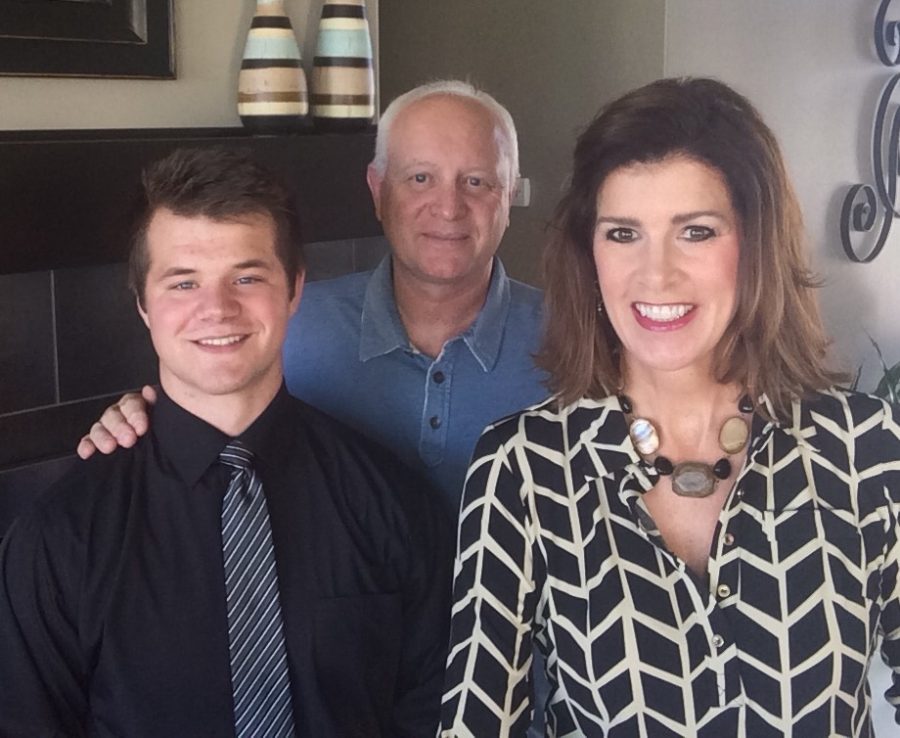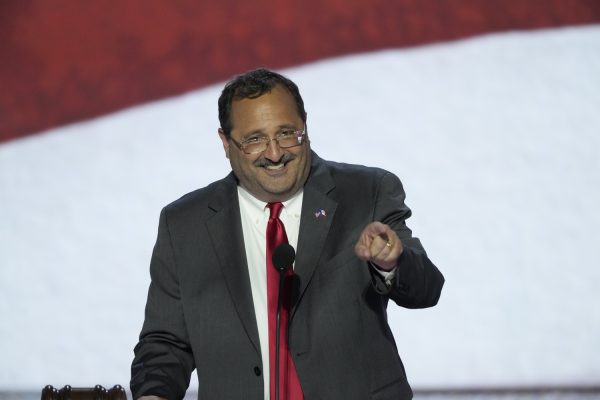Momentum for children’s mental health system grows in Iowa
Momentum is gaining for the establishment of a children’s mental health system in Iowa after years of disarray and resource shortages. Here’s how it got started.
A shortage of health-care providers and resources has contributed to a nearly nonexistent children’s mental health system in Iowa, leaving concerned parents and kids without clear avenues for help.
One parent advocate, Mary Neubauer, joined a state advisory board designed to address the lack of a children’s mental health system, one step toward improving conditions for future kids. Her son, Sergei, suffered from severe depression, anxiety, and PTSD as a result of a traumatic childhood in Russia, she said.
The Neubauer family’s experiences serve as an example of Iowa’s struggle with children’s mental health services. The barriers they encountered while seeking out care for their son shows why many are working toward changes in Iowa, including recent efforts in the Iowa Legislature and from the governor-appointed advisory board.
In fact, as momentum mounts for change in Iowa, Iowa Gov. Kim Reynolds and many legislators have called for the construction of a brand-new children’s mental health care system in Iowa.
You compare that to any other health situation that you have. If you have heart disease, the doctor says, “Here’s a specialist you can go to.”
As a result of Neubauer’s experiences, she has taken to sharing her family’s story to spark conversation and advance change in Iowa.
Neubauer said the only emergency services available in Iowa are “stabilization care,” which treats patients in crisis for up to 10 days. However, after Sergei’s first hospitalization, she knew Sergei needed more intensive, long-term care.
After Sergei’s second hospitalization, Neubauer said she asked health-care professionals where to send her son for help. Although she said the professionals tried their best and cared immensely, they struggled with connecting her to the next steps.

“You compare that to any other health situation that you have. If you have heart disease, the doctor says, ‘Here’s a specialist you can go to.’ If you’ve broken your arm, the doctor said, ‘Here’s the specialist you should go to,’” she said.
However, in this situation, Neubauer said, there simply weren’t adequate resources in Iowa.
“I can’t tell you how scary that was,” she said. “To be a parent desperately fighting to save your child, to help your child find a way to recover, and to just hear the experts say, ‘I don’t know.’ ”
Neubauer and her husband frantically searched for services across the country on their own and Sergei eventually received treatment in other states. Ultimately, Sergei wasn’t able to overcome his illness and died by suicide in September 2017 at age 18, Neubauer said. The obituary Neubauer wrote honoring her son’s life and calling for change in Iowa went viral online.
“There’s nothing that can be done for us. But if we can help others who I know are in the very same situation that we were in, then we will have accomplished something good,” she said.
Neubauer brought her unique perspective to a governor-appointed children’s advisory board while envisioning solutions for the future. She hopes to help establish a better environment for kids like Sergei.
Reynolds established the advisory board by executive order in May 2018. She said in her Jan. 15 Condition of the State address that recommendations from the board will help form the basis for a future mental health bill. The board, which is made up of legislators, mental health professionals, educators, and others, decided upon a list of advised future actions in November 2018 before passing them on to the governor.
Senate Minority leader Janet Petersen after the Condition of the State: "She outlined priorities that I think will receive bipartisan support…She made a lot of promises on the campaign trail and it is time to make due on those promises." pic.twitter.com/QYZjy66Jcv
— Daily Iowan Politics (@DIpolitics) January 15, 2019
“With a children’s mental health system, we’re starting from scratch. We have to put the system in place to start to [bring] down the waiting list, identify the additional gaps or barriers and then we can address that moving forward,” Reynolds said in an interview with The Daily Iowan.
National Association of Mental Illness Iowa Director Peggy Huppert said the structure for a children’s mental health system is currently nonexistent in Iowa. As a result, she said care can vary significantly across the state.
“We certainly have services available in different places for children, but there’s no requirement that certain core services be available like in the adult mental health system,” Huppert said. “There’s no definition of what those services are. There’s no accountability for anyone.”
Psychiatrist Joyce Vista Wayne, a member of the governor-appointed advisory committee for children’s mental health, said there is also a nationwide shortage of children and adolescent psychiatrists.
Creating a comprehensive children’s mental health system will take time, but we can and must take action.
— Governor Kim Raynolds
Eighty-five of Iowa’s 99 counties have zero child psychiatrists, according to the American Academy of Child and Adolescent Psychiatry.
In Iowa, there are currently 54 child psychiatrists serving about 750,000 children in Iowa, she said. This results in around eight psychiatrists per 100,000 children, although the recommended number is between 45 to 50 per 100,000.
Reynolds’ address shifted the spotlight further onto children’s mental health. As she laid out her main initiatives for the year, Reynolds announced establishing more services for children in crisis as a top priority.
RELATED: Iowa Gov. Kim Reynolds remains confident in ability to fund budget priorities
“Creating a comprehensive children’s mental health system will take time, but we can and must take action,” Reynolds said in her speech. “The days of merely talking are over.”
Although Iowa has a range of entities, nonprofits, and professionals providing various mental health services, Reynolds said, they’re not coordinated or integrated. She said a structure is necessary for making those changes.
Reynolds has endorsed the recommendations from the advisory board and announced that a new children’s mental health bill will be released in the near future to begin building a proper children’s mental health system for Iowa.
Creating a comprehensive children’s mental health system will take time. But we can and must take action. The days of merely talking are over.
— Gov. Kim Reynolds (@IAGovernor) January 15, 2019
“We must create a children’s mental health system where the path to healing is clearly marked,” she said in her Jan. 15 address. “A system that lets parents know where to begin — and that their child can begin immediately.”
Rep. Mary Mascher, D-Iowa City, said she believes the bill will receive widespread bipartisan support in the Legislature.
Although Reynolds did not announce money earmarked for children’s system similar to the adult system, which organizes services into 14 regions in Iowa, a few areas will receive a start.
The governor proposed allocating $1 million to establish four additional residency programs in child and adolescent psychiatry at the University of Iowa.
Reynolds has proposed to fund four additional psychiatry residencies at the University of Iowa to be in rural communities. #iagov #conditionofthestate
— Daily Iowan Politics (@DIpolitics) January 15, 2019
Reynolds announced that $3 million will be allocated to provide training for educators so they can recognize early signals of mental health crises and redirect students toward the appropriate resources.
Additionally, her proposal would allocate funding for Senate File 2113, which was signed into law on March 29, 2018 and requires that Iowa educators undergo training about children’s mental health issues.
Reynolds also signed a comprehensive mental health bill, House File 2456, on March 29, 2018. The law calls for six “access centers” for short-term care, crisis services such as a suicide hotline, long-term residential treatment programs, and more.
“I’m also calling on the Legislature to appropriate additional money for home- and community-based children’s mental health services so that we can eliminate the waiting list that currently exists,” she said in her speech.
Sen. Liz Mathis, D-Hiawatha, who serves on the children’s advisory board, said the money appropriated by the governor is just the beginning, noting that the proposed funding is currently not enough to entirely support a new system.
RELATED: ‘The future is now,’ Iowa Gov. Kim Reynolds says in her Condition of the State Address
“No matter what the governor would appropriate, the issue of mental health is in crisis and it takes a lot of time and money to design support services that will help everyone,” she said.
Mathis said the emerging children’s system will likely be built around the existing adult mental health system.
In 2013, Iowa shifted to a region-based system for adult mental health care, utilizing 14 regions across the state that are required to provide a core set of basic services.
Rep. Bobby Kaufmann, R-Wilton, who chairs the House State Government Committee, said identifying a steady funding stream should be the first step in establishing a system. He suggested incorporating children’s mental health services into the existing adult mental health system infrastructure, such as through providing money for mental health-care professionals with child and adolescent specializations.
Key GOP House member Bobby Kaufmann of Wilton said mental health (especially children's), education are two of top issues that are likely to receive bipartisan support this session #ialegis
— Daily Iowan Politics (@DIpolitics) January 14, 2019
“I think that’s going to be extremely important in making sure [children] are going to be included in the mechanisms but also that they’re fully funded,” he said.
Mascher, who served on the children’s advisory board, said the group recommended funding come from the state level instead of at a local level so as not to increase property taxes. The adult mental health system is funded from property taxes.
“A majority of [funding] is going to be coming from Medicaid and it’ll be a Medicaid expense,” she said. “We also talked a lot about private insurance, but private insurance does not cover a lot of the same programs and benefits that Medicaid covers.”
Mathis said after governance is established at the state level, some control could be relinquished to local areas.
“So you’ll have advising boards at a local level that are going to be able to deliver services locally where they’re needed when they’re needed,” she said. “They would decide where the basic core services would be met.”

Email: [email protected]
Julia DiGiacomo is a politics reporter and digital producer at The Daily Iowan. She is a junior majoring in journalism...
















